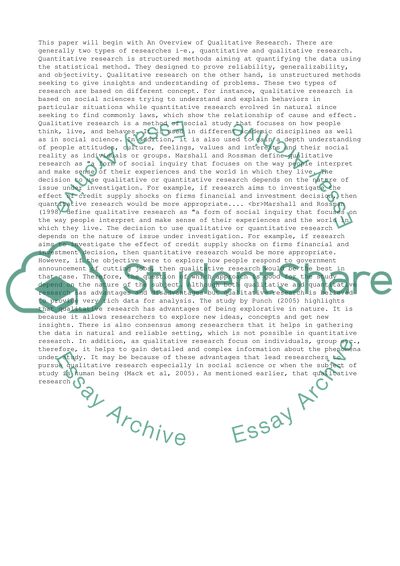Cite this document
(“Qualitative Research in management Essay Example | Topics and Well Written Essays - 2500 words”, n.d.)
Retrieved from https://studentshare.org/management/1396239-qualitative-research
Retrieved from https://studentshare.org/management/1396239-qualitative-research
(Qualitative Research in Management Essay Example | Topics and Well Written Essays - 2500 Words)
https://studentshare.org/management/1396239-qualitative-research.
https://studentshare.org/management/1396239-qualitative-research.
“Qualitative Research in Management Essay Example | Topics and Well Written Essays - 2500 Words”, n.d. https://studentshare.org/management/1396239-qualitative-research.


